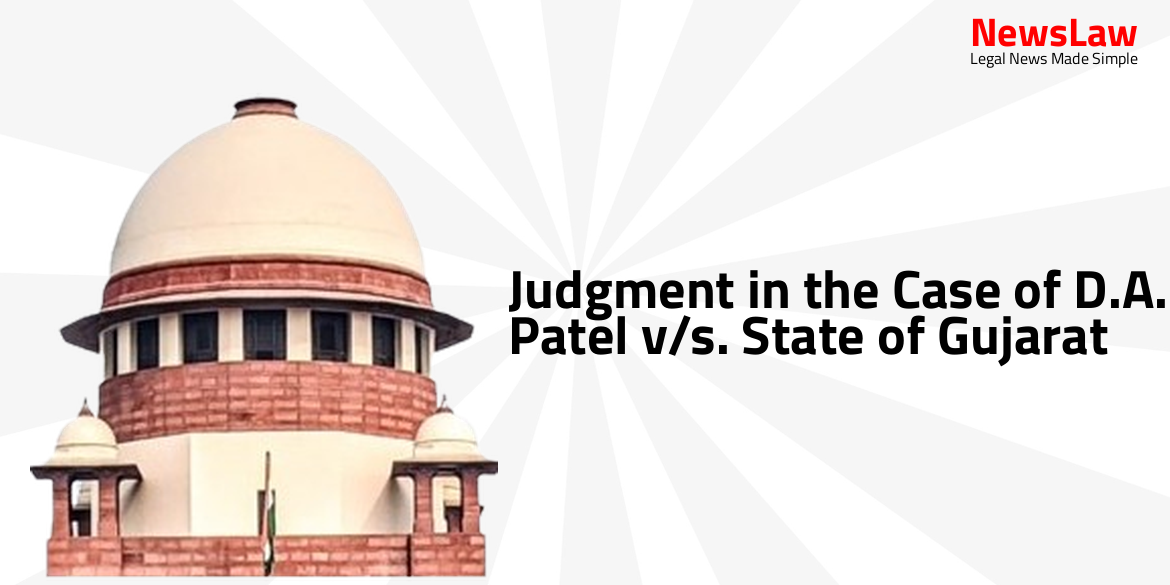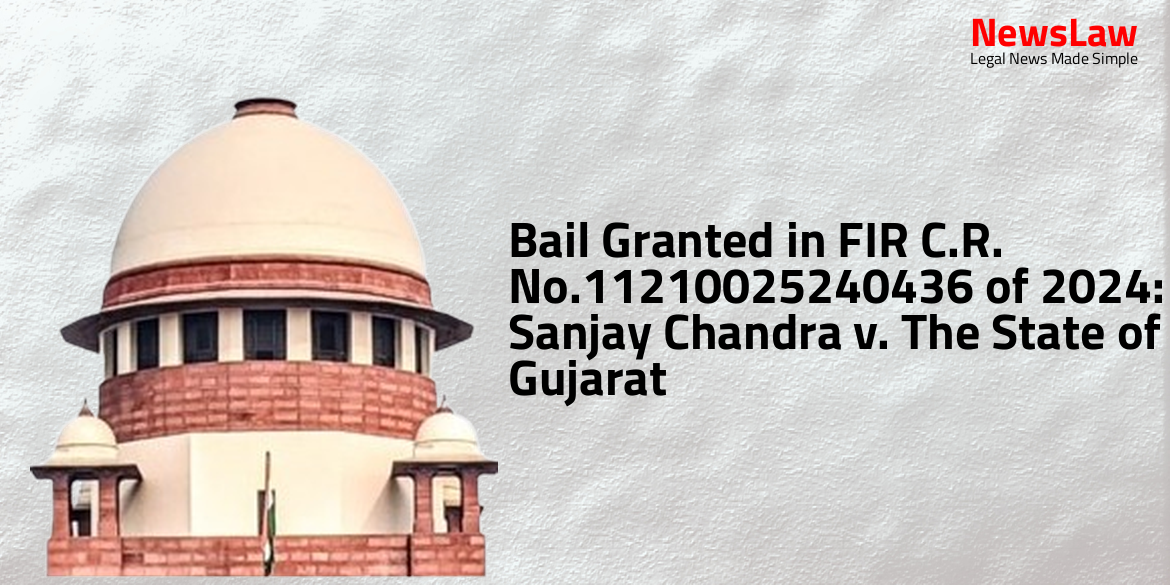In a recent judgement by the Gujarat High Court, bail has been granted to an accused involved in a case related to a dispute over a Sarpanch election. The Court carefully examined the circumstances of the case, considering the limited role of the applicant in the crime. This decision highlights the importance of a fair judicial process in resolving legal matters. Stay tuned for more updates on this significant legal development.
Facts
- The incident took place on 24.01.2023 and the FIR was lodged on 25.01.2023.
- The applicant was arrested on 25.01.2023 and has been in judicial custody since then.
- The investigation is completed and the chargesheet has been submitted.
- The FIR was lodged against a total of 3 accused persons, with the applicant being accused no.2.
- The applicant’s role in the crime is limited to holding the hand of the deceased during the commission of the crime.
Arguments
- The role of the present applicant is clearly spelt out in the chargesheet.
- No recovery or discovery was made at the instance of the present applicant.
- The nature of the offence does not warrant continued detention.
- Request for bail with suitable conditions due to the limited role attributed to the applicant.
- Opposition from the State citing the nature and gravity of the offence.
- Allegations of rivalry and pre-planned attack due to a dispute over a Sarpanch election.
- Apart from the mentioned role, no other involvement is attributed to the applicant.
- The applicant actively participated in the commission of the crime.
- Witnesses have provided graphic descriptions of the incident.
- The application of the co-accused has not been considered by the Court.
- There were inimical terms between the parties, with threats allegedly administered by the present applicant.
- The learned APP urged that the present application should not be entertained.
Analysis
- The application should be allowed based on the factual aspects presented.
- The learned advocates of both parties were heard along with the investigation papers and allegations against the applicant.
- The role of the applicant at the time of the crime was considered.
- The application was made after the chargesheet was submitted, and the investigation is now complete.
- The applicant has been in jail since 25.01.2023.
- No recovery or discovery was made at the instance of the applicant-accused.
- The Court considered the law laid down in the case of Sanjay Chandra v. Central Bureau of Investigation and Satender Kumar Antil v. Central Bureau of Investigation & Anr.
- The nature of the allegations made against the applicant in the FIR was taken into consideration.
- The facts and circumstances of the case were evaluated in light of the above.
- The Court has considered the circumstances of the case without delving into the evidence in detail.
- It is deemed a suitable case to grant bail to the applicant based on discretion.
- Therefore, the application for bail is approved.
Decision
- Applicant ordered to be released on regular bail upon executing a personal bond of Rs.15,000/- with one surety of the like amount.
- Conditions of bail include not misusing liberty, not acting in a manner injurious to the prosecution’s interest, surrendering passport, not leaving Gujarat without permission, marking monthly presence at the Police Station, and not changing residence without permission.
- Applicant will only be released if not required in connection with any other offence at that time.
- Trial Court has the authority to modify or delete any conditions as per the law.
- Observations made by the Court at the bail stage should not influence the trial Court’s decision.
- If conditions are breached, the concerned Sessions Judge can issue a warrant or take suitable action.
- Direct service of the judgement is permitted.
Case Title: GANDUBHAI BHIMABHAI KUMARKHANIYA Vs. STATE OF GUJARAT
Case Number: R/CR.MA/7599/2024



